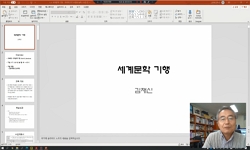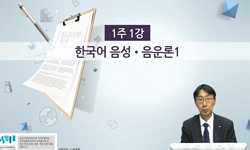최근에 디그나가와 다르마끼르띠, 그리고 다르못따라의 아포하를 각 각 외적인 아포하, 내적인 아포하,비외비내적인 아포하로 분류하는 새로운 시각의 아포하론 연구가 제시되었다.그러나 ...
http://chineseinput.net/에서 pinyin(병음)방식으로 중국어를 변환할 수 있습니다.
변환된 중국어를 복사하여 사용하시면 됩니다.
- 中文 을 입력하시려면 zhongwen을 입력하시고 space를누르시면됩니다.
- 北京 을 입력하시려면 beijing을 입력하시고 space를 누르시면 됩니다.
https://www.riss.kr/link?id=A99851450
- 저자
- 발행기관
- 학술지명
- 권호사항
-
발행연도
2013
-
작성언어
Korean
- 주제어
-
등재정보
KCI등재
-
자료형태
학술저널
-
수록면
79-101(23쪽)
-
KCI 피인용횟수
0
- 제공처
-
0
상세조회 -
0
다운로드
부가정보
국문 초록 (Abstract)
최근에 디그나가와 다르마끼르띠, 그리고 다르못따라의 아포하를 각 각 외적인 아포하, 내적인 아포하,비외비내적인 아포하로 분류하는 새로운 시각의 아포하론 연구가 제시되었다.그러나 이러한 분류는 아포 하론에 대한 새로운 이해인 동시에 몇 가지 점에서 오해의 가능성을 내 포하고 있기도 하다.우선 디그나가의 경우,언어는 언어관습에 기반 해 서 배제된 그룹의 공통성,즉 보편개념을 지칭한다는 점에서 외적이라 고 단정하기는 어렵다.또한 다르마끼르띠의 경우,언어의 직접적인 대 상인 지 내부의 형상과 간접적인 대상인 외계의 대상은 동일한 결과를 갖지 않는 것으로부터 배제된다는 점에서 동일성을 갖는다.인간은 대 상에 대한 기대를 배반하지 않는 인식에 의해 자신의 목적을 달성하기 때문이다.이와 같이 언어의 효용성에 촛점을 맞추는 다르마끼르띠의 아포하론 역시 내적이라고 규정하기엔 무리가 있어 보인다.
다국어 초록 (Multilingual Abstract)
It has been suggested, by recent research results, that in Dignaga`s view, a word denotes an entity qualified by exclusion and thus operates externally, and Dharmakirti regards apoha as an extension of internal cognition itself that appears as if exte...
It has been suggested, by recent research results, that in Dignaga`s view, a word denotes an entity qualified by exclusion and thus operates externally, and Dharmakirti regards apoha as an extension of internal cognition itself that appears as if external being influenced by various residual impressions, whereas Dharmottara denies any kind of existential possibility of apoha and regards apoha as exists neither internally nor externally. This classification is, However, not only new understanding of apoha theory but also has the potential for misunderstanding some respects. First, Dignaga has to rely on verbal convention as the final recourse to explain our act of grouping similar things together. Therefore, it is hard to believe that Dignaga regards apoha theory as an externally In the opinion of Dharmakirti`s view, perceptual objects and conceptual objects has the unification (ekikarana, or ekatva) that arises through conceptual error, in terms of that individuals which by nature have the same effect and which are excluded from other things not having the same effect are the cause of this kind of conceptual cognition. Because of, as some scholars have pointed out, humans obtain practical activity on the basis of a cognition which does not deceive our expectation toward its object (avisamvadijnanam). Therefore, it is difficult to prove that Dharmakirti regards apoha theory as an internally. And Dharmakirti`s focus upon the usefulness of language.
참고문헌 (Reference)
1 片岡 啓, "言語哲学–アポーハ論, In 認識論と論理学" シリーズ大乗仏教9春秋社 2012
2 赤松明彦, "ダルマキールティのアポーハ論" 京都哲学會 416 (416): 963-991, 1980
3 桂 紹隆, "インド人の論理学ー問答法から帰納法へー" 中央公論社 1442 : 1998
4 Matilal, Bimal Krishna, "The word and the world: India's contribution to the study of language" Oxford University Press 1990
5 Katsura, Syoryu, "The Apoha Theory of Dignāga" 28 (28): 16-20, 1979
6 Hattori, Masaaki, "The Apoha Theory as Referred to in the Nyāyamañjarī, In Apoha : Buddhist nominalism and human cognition" Columbia University Press 2011
7 Kobayashi, Hisayasu, "Prajñākaragupta’s Interpretation of svalakṣaṇa" 59 (59): 2011
8 "PVSV. Pramāṇavārttikasvavṛtti (Dharmakīrti): Raniero Gnoli. The Pramāṇavārttikam of Dharmakīrti, the first chapter with the autocommentary, text and critical notes"
9 Ernst Steinkellner, "PSV. Pramāṇasamuccaya (Dignāga)"
10 Ishida Hisataka, "On the classification of anyāpoha"
1 片岡 啓, "言語哲学–アポーハ論, In 認識論と論理学" シリーズ大乗仏教9春秋社 2012
2 赤松明彦, "ダルマキールティのアポーハ論" 京都哲学會 416 (416): 963-991, 1980
3 桂 紹隆, "インド人の論理学ー問答法から帰納法へー" 中央公論社 1442 : 1998
4 Matilal, Bimal Krishna, "The word and the world: India's contribution to the study of language" Oxford University Press 1990
5 Katsura, Syoryu, "The Apoha Theory of Dignāga" 28 (28): 16-20, 1979
6 Hattori, Masaaki, "The Apoha Theory as Referred to in the Nyāyamañjarī, In Apoha : Buddhist nominalism and human cognition" Columbia University Press 2011
7 Kobayashi, Hisayasu, "Prajñākaragupta’s Interpretation of svalakṣaṇa" 59 (59): 2011
8 "PVSV. Pramāṇavārttikasvavṛtti (Dharmakīrti): Raniero Gnoli. The Pramāṇavārttikam of Dharmakīrti, the first chapter with the autocommentary, text and critical notes"
9 Ernst Steinkellner, "PSV. Pramāṇasamuccaya (Dignāga)"
10 Ishida Hisataka, "On the classification of anyāpoha"
11 Tillemans, Tom, "How to Talk About Ineffable Things: Dignāga and Dharmakīrti on Apoha, In Apoha : Buddhist nominalism and human cognition" Columbia University Press 2011
12 Pind, Ole, "Dignāga’s Philosophy of Language - Dignāga on anyāpoha" Universität Wien 2009
13 Hattori, Masaaki, "Dignāga, on Perception, being the Pratyakṣapariccheda of Dignāga's “Pramāṇasamuccaya” from the Sanskrit Fragments and the Tibetan Versions, In Harvard Oriental Series 47" Harvard University Press 1968
14 赤松明彦, "DharmottaraのApoha論再考–– Jñānaśrīmitraの批判から––" 33 (33): 334-340, 1984
15 Siderits, Mark, "Apoha : Buddhist nominalism and human cognition" Columbia University Press 2011
16 Kataoka, Kei, "A Critical Edition of Bhaṭṭa Jayanta's Nyāyamañjarī: The Section on Kumārila's Refutation of the Apoha Theory" 154 : 2008
17 Kataoka, Kei, "A Critical Edition of Bhaṭṭa Jayanta's Nyāyamañjarī: The Buddhist Refutation of Kumarila's Criticism of Apoha" 156 : 2009
동일학술지(권/호) 다른 논문
-
특집논문 : 성언량의 비량귀속 담론 발전 양상 연구-땃뜨와상그라하 (Tattvasamgraha) 1488-1524를 통한 고찰
- 동아시아불교문화학회
- 함형석 ( Hyoungseok Ham )
- 2013
- KCI등재
-
투고논문 : 十二分敎(십이분교)의 수사기법과 붓다의 교화방법
- 동아시아불교문화학회
- 강기선 ( Gi Su Kang )
- 2013
- KCI등재
-
투고논문 : 집단적 고통에 대한 불교적 이해 -공업(共業)을 중심으로
- 동아시아불교문화학회
- 윤종갑 ( Jong Gab Yun )
- 2013
- KCI등재
-
투고논문 : 『瑜伽師地論(유가사지론)』 의 「攝決擇分(섭결택분)」에서의 轉依思想(전의사상)
- 동아시아불교문화학회
- 이윤옥 ( Yoon Ok Lee )
- 2013
- KCI등재
분석정보
인용정보 인용지수 설명보기
학술지 이력
| 연월일 | 이력구분 | 이력상세 | 등재구분 |
|---|---|---|---|
| 2026 | 평가예정 | 재인증평가 신청대상 (재인증) | |
| 2020-01-01 | 평가 | 등재학술지 유지 (재인증) |  |
| 2017-01-01 | 평가 | 등재학술지 유지 (계속평가) |  |
| 2013-01-01 | 평가 | 등재학술지 선정 (등재후보2차) |  |
| 2012-01-01 | 평가 | 등재후보 1차 PASS (등재후보1차) |  |
| 2010-01-01 | 평가 | 등재후보학술지 선정 (신규평가) |  |
학술지 인용정보
| 기준연도 | WOS-KCI 통합IF(2년) | KCIF(2년) | KCIF(3년) |
|---|---|---|---|
| 2016 | 0.55 | 0.55 | 0.49 |
| KCIF(4년) | KCIF(5년) | 중심성지수(3년) | 즉시성지수 |
| 0.5 | 0.51 | 0.714 | 0.17 |




 KISS
KISS






